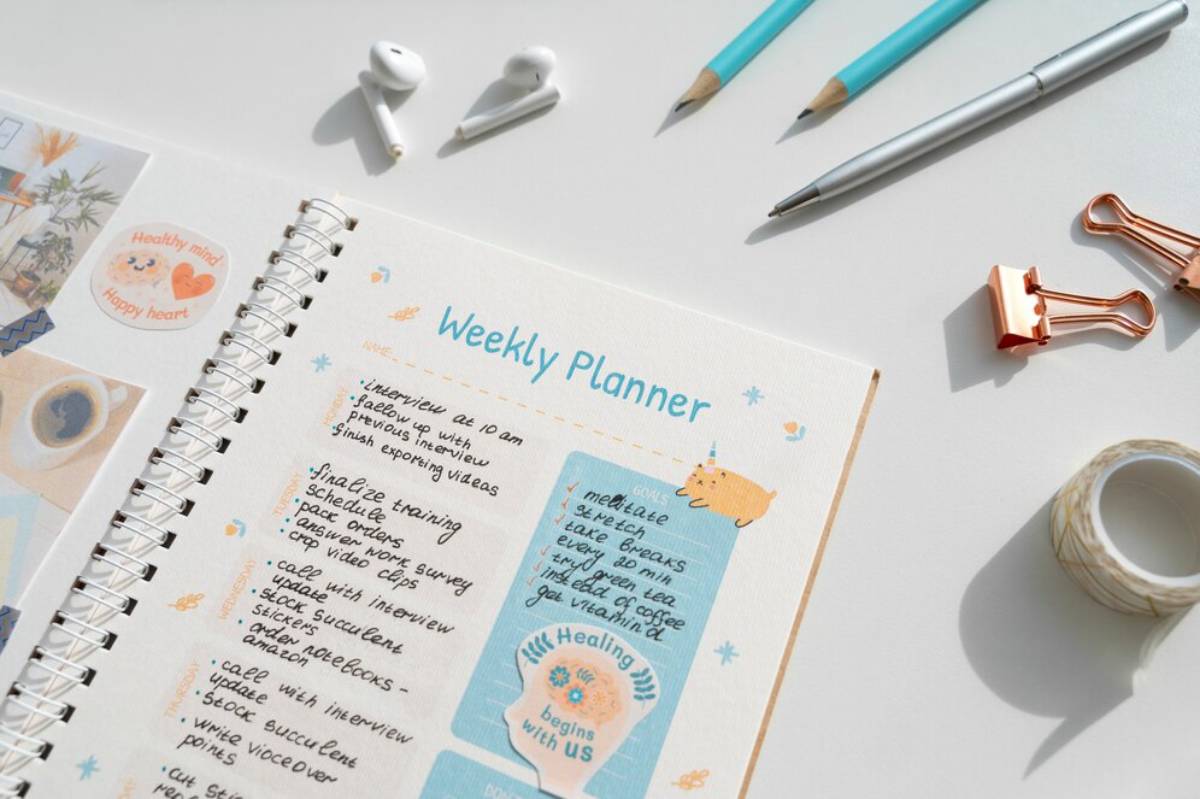
Building Better Habits with Daily Journaling
Ever tried building a new habit only to lose momentum after a few days? You’re not alone. Building lasting habits, like waking up earlier, drinking more water, or staying focused at work, can be tough. It often feels like an uphill battle.
But what if the key to consistency wasn’t more willpower — it was more self-awareness?
That’s exactly what daily journaling provides. Using a habit-tracking journal helps you gain clarity and motivation. It provides insight to build habits that last. You do this not with pressure or perfectionism, but through reflection and intention.
In this article, we’ll look at daily habit journaling. This practice can help you build better routines, break bad habits, and create a success system that fits your life.
Why Habits Matter More Than Motivation
We often think change begins with motivation. But in reality, motivation is unreliable. Some days you’ll feel like exercising or meditating. Other days you won’t. Habits are what carry you through those unmotivated days — if you build them right.
The power of habits:
- Habits create structure – reducing mental fatigue
- They shape identity – small actions reflect who you’re becoming
- They compound over time – small changes lead to big outcomes
- They reduce friction – the more automatic the habit, the less resistance you face
Journaling is a tool that brings all of this into sharper focus, helping you track, refine, and reinforce habits in real time.
If decision fatigue is affecting your routines, learn how creating a decision matrix in your journal can help prioritise what matters.

How Daily Journaling Helps Build Habits
Journaling works because it brings attention to your actions. When you write things down, you’re more likely to follow through. More importantly, you start to see why things work (or don’t), so you can adjust your approach.
Key benefits of daily habit journaling:
- Accountability – You’re less likely to skip if you know you’ll write about it
- Pattern recognition – You’ll spot what throws you off track
- Motivation through progress – Even small wins look meaningful when recorded
- Clarity on behaviour – You see the gap between intention and action
- Emotional insight – Helps you understand the “why” behind your habits
Setting Up Your Habit Tracking Journal
Getting started doesn’t require a special planner — just a notebook, a pen, and a structure that suits your style.
Here’s how to set up a simple but powerful habit tracking journal layout:
Choose Your Focus Habits
Pick 1–3 habits to focus on for the next 30 days. Too many at once can dilute your energy.
Examples:
- Drink 2L of water per day
- Read 10 pages daily
- Meditate for 5 minutes
- No social media before 10am
- Write in journal every night (yes — journaling can be its own habit!)
Create a Daily Logging System
Use a table, bullet list, or calendar-style grid where you can tick off completed habits. You can also rate each habit by effort (1–5) or satisfaction.
Reflect Weekly
Set aside one day a week to review your progress. This step is essential — it’s where growth happens.
Weekly reflection prompts:
- What worked well this week?
- What made my habits easier or harder?
- Did I notice any emotional resistance?
- What can I adjust for next week?
This reflection loop transforms tracking into transformation.
Writing for Success: Habit Reflection Prompts
Going beyond ticks and crosses, success routine writing is about making meaning from your habits. It helps you understand the “why” behind the routine and tailor it accordingly.
Try journaling with these habit-focused prompts:
- “Today, my biggest habit win was…”
- “What threw me off today, and how did I respond?”
- “This habit feels important because…”
- “I notice this habit shifts my mood by…”
- “What’s one small adjustment that could improve tomorrow?”
When you reflect in writing, you’re not just building a habit — you’re deepening a relationship with your future self.
Designing Morning and Evening Habit Journals
You can split your journal into two sessions: morning (intention) and evening (reflection). This bookends your day with clarity and feedback.

Morning Journaling:
- What 1–2 habits will I focus on today?
- What might get in my way?
- How will I feel after completing these?
Evening Journaling:
- Which habits did I complete?
- What was easiest / hardest today?
- What do I want to carry into tomorrow?
Morning pages also support habit anchoring. Learn how morning journaling cements positive routines for better daily flow.
When Habit Journaling Works Best
Journaling supports habits during the trickiest stages, especially the beginning and the plateau.
Ideal times to start a habit tracking journal:
- During a lifestyle change (new job, move, fitness goal)
- After a setback or burnout period
- When starting a new wellness, learning, or productivity plan
- During a focused 30-day challenge
- When struggling to stay consistent with something that matters
This is your anchor — even when motivation fades.
Common Mistakes When Habit Journaling
- Tracking too many habits at once – Focus builds momentum; clutter causes overwhelm
- Skipping reflection – Data without insight won’t help you grow
- Using journaling as punishment – The goal is clarity, not guilt
- Expecting perfection – Missed days are feedback, not failure
- Ignoring emotional resistance – If you dread a habit, explore why
Remember: the purpose of your habit journal isn’t control — it’s consciousness.

Templates to Try: Creative Layouts for Habit Journals
Journaling doesn’t have to be boring or repetitive. Here are some creative layout ideas:
- Weekly habit wheel – Circle with segments for each habit
- Mini-mood tracker + habits – Notice how habits affect your feelings
- Before and after pages – Reflect on who you were before starting the habit
- Trigger journal – Note what triggers you to start or avoid a habit
- Monthly milestones page – Log mini wins and breakthroughs
These designs keep your journaling engaging and personalised.
Conclusion: Make Habits Stick Through Daily Reflection
Anyone can start a habit. But keeping it alive — that takes awareness, compassion, and a system that works with your life.
Using a habit tracking journal bridges intention and action. It turns vague goals into visible patterns, missed days into meaningful lessons, and routines into rituals that shape who you’re becoming.
So don’t aim for perfect habits. Aim for honest journaling. Track what matters. Reflect often. And keep building a life you’re proud to show up for.
Start today — one line, one habit, one small win at a time.